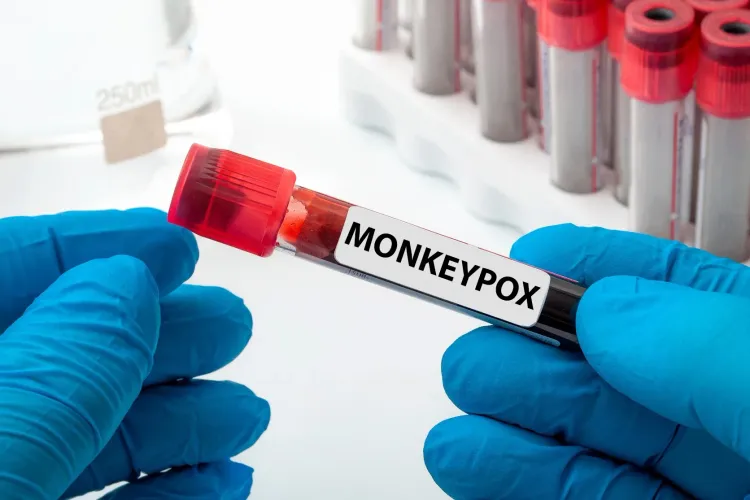South Africa Confirms Three New Monkeypox Cases

Synopsis
Key Takeaways
- Three new cases of monkeypox confirmed in South Africa.
- All cases detected in Gauteng Province.
- First cases reported in 2023 after previous case in September 2024.
- Mpox is considered a public health emergency by the WHO.
- Individuals with symptoms advised to seek medical care.
Johannesburg, March 1 (NationPress) The National Department of Health in South Africa has urged the public to remain vigilant as three new cases of monkeypox, referred to as mpox, have been confirmed within the nation.
Foster Mohale, a spokesperson for the health department, indicated that all three cases emerged in Gauteng Province. "These mark the first confirmed instances of mpox in South Africa for this year, following the last reported case in September 2024," Mohale stated on Friday.
The newly confirmed cases consist of a 30-year-old male who has tested positive for the Clade I mpox virus, which is currently prevalent in the Democratic Republic of the Congo and Uganda. This individual recently traveled to Uganda.
Additionally, a 27-year-old man and a 30-year-old woman were diagnosed following contact tracing efforts conducted by the outbreak monitoring team.
According to Mohale, the cumulative number of mpox cases in the country has risen from 25 to 28, including three fatalities, since the outbreak commenced in May of last year.
The World Health Organization (WHO) has categorized mpox as a public health emergency of international concern, urging a coordinated global response to curb the outbreak and protect lives, as reported by Xinhua news agency.
Authorities in South Africa are advising individuals exhibiting symptoms of mpox to seek medical attention.
The WHO states that mpox is an infectious disease that can result in a painful rash, swollen lymph nodes, fever, headaches, muscle pain, back pain, and fatigue. While most individuals recover fully, some may experience severe illness.
Mpox primarily spreads from person to person through close contact with an infected individual, including family members. Close contact can mean skin-to-skin, mouth-to-mouth, or mouth-to-skin interactions, and may also involve being face-to-face with an infected person, which can produce infectious respiratory particles.
The symptoms of mpox typically begin within a week but can emerge anywhere from 1 to 21 days after exposure. Symptoms generally last between 2 to 4 weeks, although they may persist longer in individuals with compromised immune systems.










